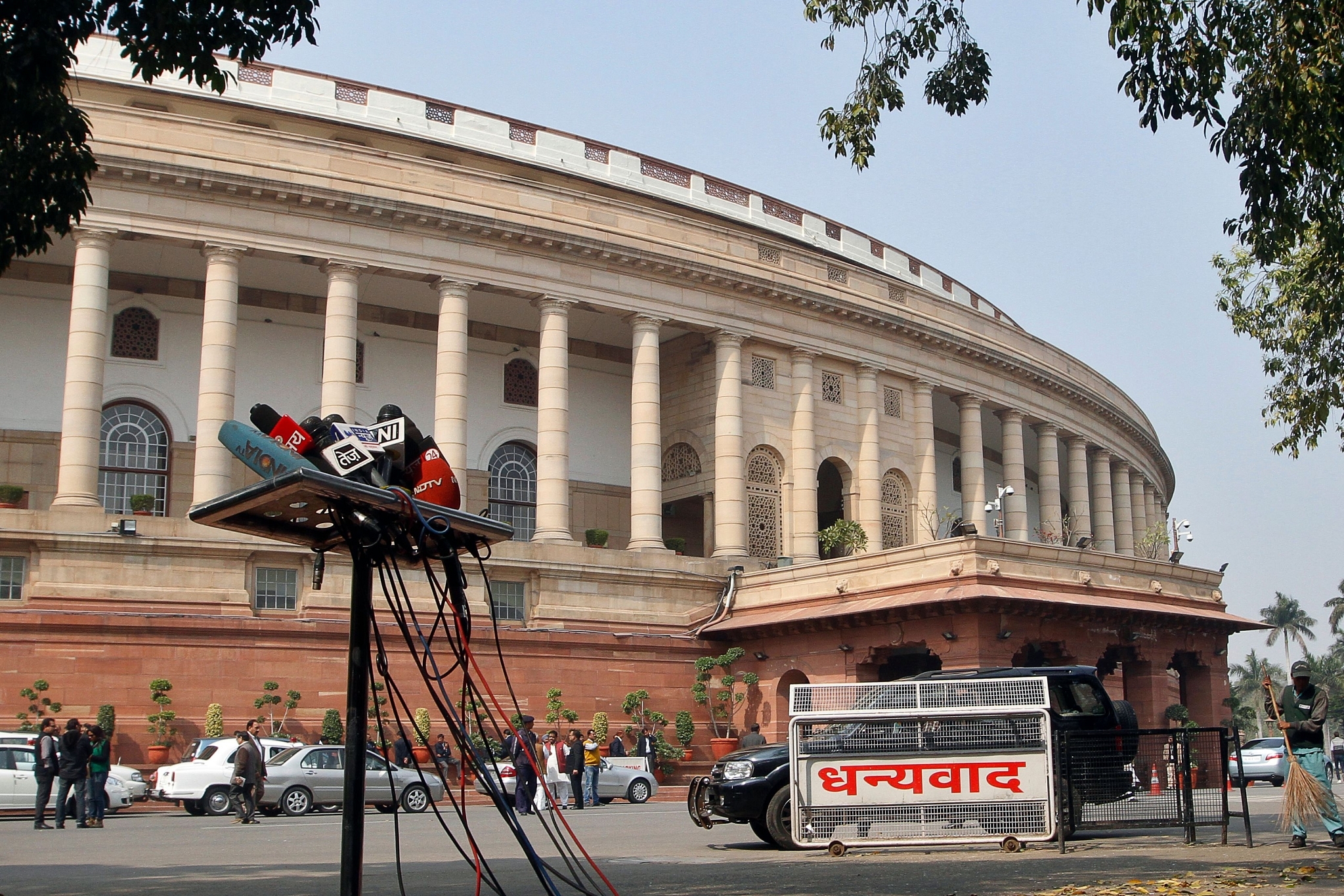Politics
And The Best And Worst-Performing MPs Of The Sixteenth Lok Sabha Are. . .
- The sixteenth Lok Sabha registered an average attendance of 80 per cent, and on average, each member participated in 67 debates from 2014-2019.

Parliament on the last day of 15th Lok Sabha. (Sanjeev Verma/Hindustan Times via Getty Images)
If performance in Parliament is any measure to conclude on our legislators’ faith in democracy, then we, the people of India, have a reason to celebrate. An analysis of the PRS database on the sixteenth Lok Sabha reflects that only 20 per cent (87 out of 425) of the full-time MPs (excluding ministers) have fallen short concurrently on all four measures of participation in the Parliament, these being the national average attendance, debate participation numbers, numbers of questions raised, and private member Bills introduced.
The national average attendance of our parliamentarians was 80 per cent, the average number of debates participated in was 67.1 and the average number of questions asked was 293. Although most private member Bills do not get discussed and only a handful have been passed till date in our political history, the average number of Bills introduced by our MPs stood at 2.3 per head.
Despite the statistics, a scroll through the worst performers of the recently concluded Lok Sabha throws up some notable names.
President of the Congress party and the party face for the 2019 general elections, Rahul Gandhi, paints an abysmal picture with his Lok Sabha record. In his third term as MP, his attendance stands at a mere 52 per cent, 28 per cent below the national average. In the entire five-year term, Gandhi raised zero questions and didn’t introduce a single private member Bill.
He participated in a sum total of 14 debates while an average parliamentarian participated in at least 67 debates in the course of the sessions.
Sonia Gandhi, the erstwhile commander-in-chief of the Indian National Congress, hardly does any better. With an overall attendance of 60 per cent, Ms Gandhi participated in merely six debates, and throughout the sixteenth Lok Sabha, neither did she raise any questions nor did she introduce any Bill.
Following in their footsteps is Dimple Yadav, the wife of former Uttar Pradesh chief minister Akhilesh Yadav and daughter-in-law of Mulayam Singh Yadav. A second-time MP, Yadav’s attendance was a shameful 31 per cent. She asked no questions, introduced no Bills and participated in a mere two debates.
Another popular name in the list is that of the cacophonous defector Shatrughan Sinha. Sinha’s deep interest in our democracy is reflected in the zero questions he raised, zero debates he participated in, and the zero Bills he introduced in Parliament. There are two more actor-MPs from the Bharatiya Janata Party (BJP) with similar track records, Hema Malini and Paresh Rawal.
Hema Malini’s attendance is a mere 39 per cent, but she raised 210 questions and participated in 17 debates. Paresh Rawal had an attendance of 66 per cent, while he asked 185 questions, participated in only eight debates, and introduced no private member Bill. Fielding actors as MPs has long been a contentious issue and the above-mentioned names from BJP only further this debate.
Nonetheless, out of the four MPs with a 100 per cent attendance in the sixteenth Lok Sabha, three are members of the BJP, them being Gopal Chinayya Shetty, Ramesh Chander Kaushik and Bhairon Prasad Mishra, while the fourth, Dr Kulamani Samal was the Biju Janata Dal’s MP from Odisha.
The BJP’s little-known MP from Banda constituency in Uttar Pradesh, Bhairon Prasad Mishra, warrants an elaborate mention. An intermediate pass, Mishra not only had 100 per cent attendance but also participated in the highest number of debates (2,095 in total) and raised a total of 545 questions in the sixteenth Lok Sabha.
Once the election frenzy subsides, one seldom ponders on the ‘representative’ part of our parliamentary democracy. While the qualitative discussions on a few speeches dominated prime time media, the quantitative aspect of our MPs’ performance is largely neglected.
The mainstream media has failed not only to celebrate the real chowkidars of our democracy, who bring forth the voice of the common people to the attention of the highest decision-making body, but it has also lagged in its duty to expose the failures of some of the most hyped-up parliamentarians.
Attendance, the number of questions asked and debates participated in, indicate the consistency and discipline of a parliamentarian. After five years of passive waiting, as the nation gears up to vote again, it is these report cards that must inundate the minds of the citizens before they finally choose their representatives for the next five years.
Introducing ElectionsHQ + 50 Ground Reports Project
The 2024 elections might seem easy to guess, but there are some important questions that shouldn't be missed.
Do freebies still sway voters? Do people prioritise infrastructure when voting? How will Punjab vote?
The answers to these questions provide great insights into where we, as a country, are headed in the years to come.
Swarajya is starting a project with an aim to do 50 solid ground stories and a smart commentary service on WhatsApp, a one-of-a-kind. We'd love your support during this election season.
Click below to contribute.
Latest